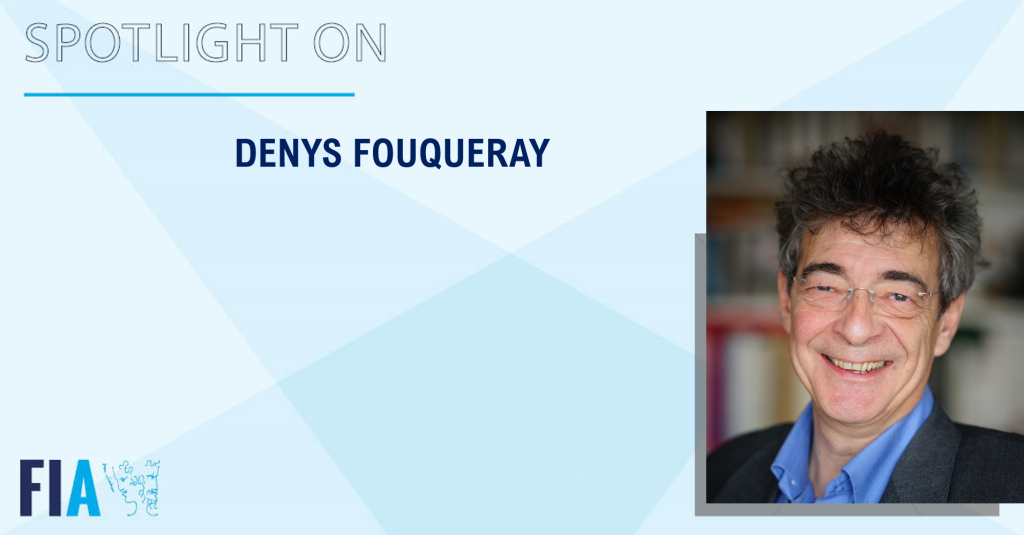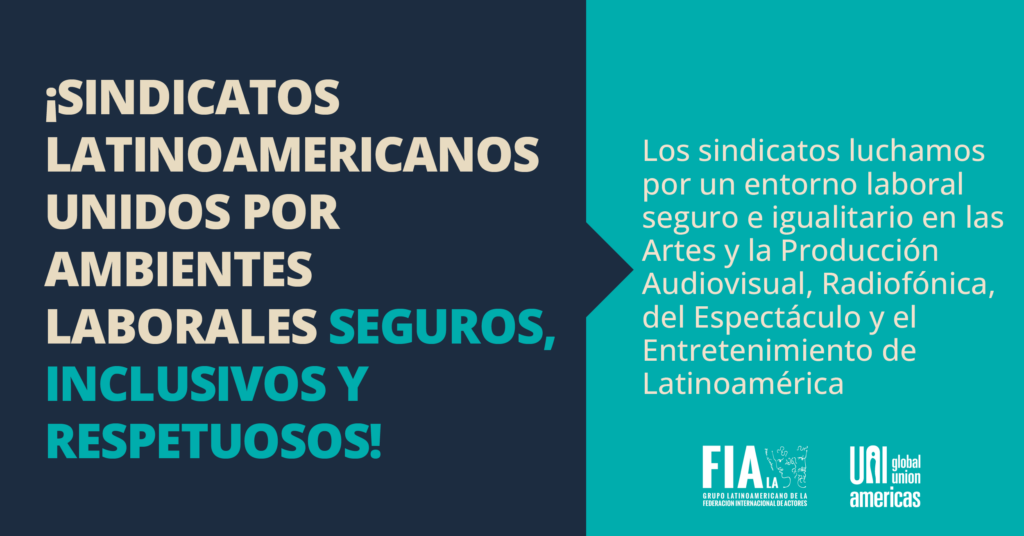All the pictures of the event are available for download on the FIA Flickr Account by clicking here.
After more than two years working predominantly in a virtual environment, more than 70 delegates from 25 performer unions in 21 countries have finally come together at the FIA Executive Committee, held in London on September 30 and October 1, 2023, with a determination to fight industry post-pandemic rollbacks, threatening sustainable work opportunities for performers in the media and entertainment sector and against a stern backdrop tainted by rising populism, a ferocious international armed conflict and a looming recession. In this difficult environment, the work of trade unions is more meaningful than ever before, as they uphold democracy and human rights, including freedom of artistic expression, promote fair and inclusive work environments and decent terms and conditions of engagement.
With a packed agenda, ranging from global diversity to green production, to the threats and opportunities of artificial intelligence, ethical casting practices or organizing marginalized performers, FIA delegates had a rather dense but stimulating meeting. One of the highlights was the unconditional support pledged by all FIA affiliates to ACTRA, the union representing performers in English-language recorded media production, against the unlawful and union-busting tactics caused by the leadership of the Institute of Canadian Agencies in what has become the longest labour dispute in ACTRA’s almost 80-year history. FIA affiliates acknowledged the potential for this conflict to disrupt ACTRA’s ability to continue to negotiate minimum terms and conditions for independent contractors in Canada and unanimously passed a resolution committing all FIA affiliates to stand firm against the spread of non-union work.
The FIA Executive Committee also unanimously passed a resolution supporting the principle of “no collection without distribution”, based on the premise that statutory royalty payments collected on behalf of performers should be distributed to those performers, with no discrimination based on residence, nationality, or any other criteria. As a global trade union federation built on equality and solidarity, FIA is committed to making sure that all performers, regardless of where they live or perform, may earn a decent living from the exploitation of their work, wherever that may be, and this principle is a natural extension of this fundamental remit. Upholding this principle gives FIA a clear mandate as Europe is envisaging a protectionist and discriminatory policy with respect to statutory payments due to foreign audio performers when their recordings are broadcast or otherwise communicated to the public in Europe. It is also a fundamental guidance as more countries seek to ratify the WIPO Beijing Treaty, granting audiovisual performers meaningful IP protection based on national treatment.
The FIA Executive heard a distressing live report by Anatolii Yalovyi, representing the Ukrainian Cultural Workers’ Union, about the devastating impact of the war wedged by the Russian government and wrecking the life of so many people in Ukraine. After a standing ovation and a minute of silence, FIA pledged to continue to convey solidarity and financial support to union members and their families, with several Executive Committee members making additional firm commitments.
In a highly engaging panel, members of the FIA Executive discussed how performer unions are actively encouraging respectful and inclusive casting practices around the world, based on transparency and informed consent, and are working to promote the casting of artists who self-identify with historically underrepresented groups in roles where identity characteristics are not prescribed. Another panel delved into different initiatives intended to help the live performance and recorded media sector embrace greener production standards, contributing to the global effort to fight against global warming and ranging from the promotion of carbon counters to the decarbonization of union buildings and cultural venues, the proscription of single-use plastics in the workplace, the promotion of higher environmental standards in collective bargaining or the introduction of green riders in contracts.
A special session focused on the transformative use of performances made possible by artificial intelligence, based on ever more sophisticated deep learning algorithms, and how synthetic content is revealing upsetting gaps in the IP legal framework, prompting performer unions to find innovative ways to uphold the lawful use of their members’ performances, protect their image and reputation and monetize the synthetic rendering of their likeness and voice though data mining.
FIA Executive members also discussed subscription video on demand (SVOD) and the revenue models pioneered by some FIA affiliates to generate ongoing payments, breaking away from the pressure by global platforms to buy all rights upfront and in perpetuity against the payment of a disproportionately low and almost symbolic fee. FIA will soon finalize guidelines for its membership, with practical examples drawn from best union practices and an illustration of how these different models can generate meaningful revenue for performers in their specific national context.
With a strong resolve to promote inclusion and diversity in the media, arts and entertainment industry, FIA delegates adopted a comprehensive strategy to encourage further compliance with these fundamental principles also at FIA meetings and within the federation’s own leadership structure – endorsing a revision of FIA’s constitutional rules and electoral system designed to make the composition of its governing bodies more balanced and representative in the future.
With positive news from New Zealand, where a new bill finally acknowledged the right of independent contractors in the film and TV industry to negotiate collectively minimum terms and conditions, finally putting the records straight since the 2010 Employment Relations Amendment Act (the so called “Hobbit law”), the FIA Executive also greeted a major development in Europe, forcefully promoted by FIA, and groundbreaking new guidelines by the EU Competition watchdog – publicly released on the first day of the FIA Executive – enabling solo self-employed, freelance workers to engage in collective bargaining to improve their terms and conditions. Like in many other countries where antitrust rules have been zealously interpreted to liken atypical workers to undertakings, the threat of sanctions from national competition authorities in Europe has had a chilling effect on collective bargaining in our sector, where a large part of the workforce is engaged on a freelance basis.
The FIA Executive Committee welcomed the creation of a global youth group, named “FIA Future Now”, with many young delegates flying to London to meet in person for the first time and sharing a common aspiration towards modern organizing and campaign priorities.
The acceptance of four new affiliates from Luxembourg, Greece, Belgium, and Colombia, concluded one of the most successful FIA meetings in recent times, and an inspirational opportunity for performer unions from around the world to meet each other again, after two very challenging years, only to find themselves more united and resolute than ever.
All resolutions adopted at the FIA EC 2022 are available hereunder in French, English and Spanish. Pictures of the event will be made available on the FIA Flikcr account soon.
FIA EC London 2022 Resolution – No Collection without distribution_FR
FIA EC London 2022 Resolution – No Collection without distribution_EN
FIA EC London 2022 Resolution – No Collection without distribution_ES
FIA EC London 2022 Resolution – Trade union solidarity_FR
FIA EC London 2022 Resolution – Trade union solidarity_EN
FIA EC London 2022 Resolution – Trade union solidarity_ES
FIA EC London 2022 Resolution -UK strike solidarity_FR





